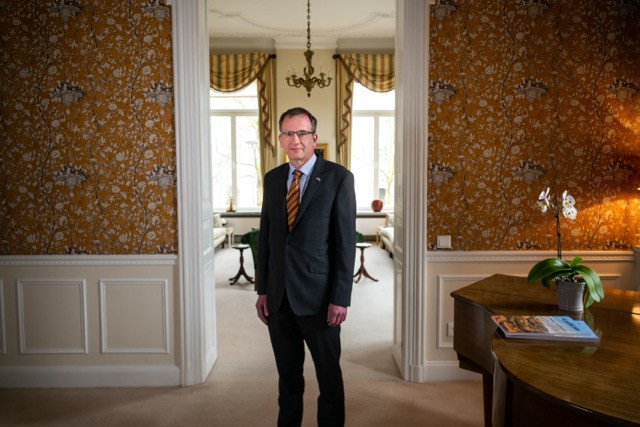As 2020 draws to a close, UK citizens in the grand duchy who do not have another EU nationality are considering the full implications of Brexit. More precisely, they will be looking at the end of the transition period on 31 December and thinking about their residency status.
British citizens’ rights have been guaranteed to some extent in the broad agreement between the UK and the European Union, though it is up to each member state to implement that agreement via its own processes and timetables.
“The good news is that Luxembourg has been one of the early implementers of the decision,” says UK ambassador John Marshall. “Given the choice between a constitutive system and a declaratory system, they went for the former, which essentially means that those who fall within the scope of the agreement need to apply for a new [residency] card.”
Under the scheme in the grand duchy, British nationals have until the end of June 2021 to apply for their new residency status, which Marshall says is fairly standard across the member states. “It is also the deadline by which EU nationals in the UK must apply for the EU settlement scheme,” the ambassador explains. “Although we obviously introduced that a lot earlier. It was fully launched in March last year and already we've had about 3.7 million applications, which is more than the 3.3 or 3.4 million EU nationals that were estimated to be in the UK at the time of the [June 2016] referendum.”
The embassy reckons around 1,600 British nationals in Luxembourg have already applied through the scheme. However, not all Brits will need to have a new card come June next year. “If you have another nationality of any EU member state or EFTA state, then you don't have to apply for a new card, though should you wish to you can. And if you are a holder of a titre de légitimation, which many of those who work in the EU institutions or say the NATO supply and procurement agency have, then they also don't need to apply.”
Ambiguity for dual nationals
On the other hand, a recent posting on social media by Fiona Godfrey, who has been advocating for the rights of British citizens in the EU under the auspices of the BRitish Immigrants Living in Luxembourg (BRILL) group and British in Europe platform, suggested that dual nationals would be better off applying just to be on the safe side. Following dialogue with the European Commission, Godfrey wrote: “If you don't apply as a dual national you obviously won't lose your resident rights, but you could lose your social security and pension aggregation rights, as well as some family reunification rights and you may have recognition of qualifications issues.”
But Marshall says that social security coordination for those who fall within the scope of the withdrawal agreement continues as before. “State pensions will continue to be operated and can be paid into Luxembourg bank accounts. So, no action that needs to be taken by individuals.”
The ambassador admits that the embassy does not have a precise figure how many people need to apply. “We think it's probably around 4,000 roughly,” he says. “So, 1,600 after three months is, you know, a goodish start.” But Marshall underlines that both the embassy and the Luxembourg ministry of foreign affairs are keen that British nationals don't leave it to the last minute to apply.
“The last thing we want is everyone sort of leaving it to the last minute, applying in in June, and then we find that there's a huge rush and the government is swamped. And then some people in early July may not have yet been issued with a card.”
Even though the new cards don’t become officially valid until January 2021, existing residency cards remain valid until the end of the year. And the new card will, says Marshall, “unambiguously show that you are someone who falls within the scope of the agreement.”
In addition, all the feedback that the embassy has received indicates that the application process is running very smoothly.
Driving licences and passports
Some UK citizens may also need to exchange their driving licence, a process that the embassy also encourages completing by the end of 2020, even if UK licences can still be used for 12 months after this year. “We are currently trying to clarify for ourselves whether during the 12 months after the end of transition period, British nationals will need to either exchange their driving license for Luxembourg one or convert it. And those are two different processes,” the ambassador explains.
In addition, Brits will have to double check the validity on their passports when travelling after the end of this year. “As a third country national, your passport needs to have at least six months validity. And then there's a sort of slightly complicated message that it also needs to be not more than nine and a half years old.”
